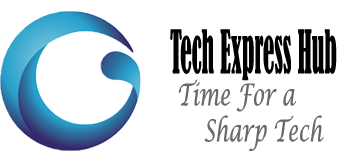
Neurological disorders encompass a wide range of conditions that affect the brain, spinal cord, and nervous system, presenting complex challenges for patients, caregivers, and healthcare professionals alike. As research continues to unravel the mysteries of the human brain, recent developments in the field of neurological disorder news offer hope, insights, and potential breakthroughs for millions affected by these conditions.
Precision Medicine: Tailoring Treatment to Individuals:
One of the most promising trends in neurological disorder news is the advent of precision medicine, a groundbreaking approach that recognizes the unique genetic makeup and biological characteristics of each patient. By leveraging advancements in genomics wainsider.com/, molecular biology, and personalized diagnostics, researchers are gaining unprecedented insights into the underlying mechanisms of neurological disorders, paving the way for targeted therapies and individualized treatment regimens.
Gene Therapy: Unlocking Potential Cures:
In recent years, gene therapy has emerged as a transformative tool in the treatment of neurological disorders, offering the potential to correct genetic mutations and restore normal function to diseased cells. From rare genetic conditions such as spinal muscular atrophy to more common disorders like Parkinson’s disease, researchers are exploring innovative gene-based interventions that hold the promise of long-term therapeutic benefits for patients.
Brain-Computer Interfaces: Bridging the Gap:
Advancements in brain-computer interface (BCI) technology are revolutionizing the way we interact with and understand the human brain. By establishing direct communication pathways between the brain and external devices, BCIs hold immense potential for patients with neurological disorders, enabling them to regain lost motor functions, communicate with others, and even control prosthetic limbs using only their thoughts.
Artificial Intelligence: Enhancing Diagnosis and Treatment:
Artificial intelligence (AI) is rapidly reshaping the landscape of neurological disorder news, offering powerful tools for early diagnosis, predictive modeling, and personalized treatment planning. Machine learning algorithms can analyze vast amounts of patient data, identify patterns, and generate actionable insights that can inform clinical decision-making and improve patient outcomes.
Patient Advocacy: Amplifying Voices, Driving Change:
Amidst the scientific advancements and technological innovations, the voices of patients and caregivers remain at the heart of the neurological disorder news narrative. Patient advocacy groups and grassroots organizations play a vital role in raising awareness, driving research funding, and championing policies that prioritize the needs of individuals affected by neurological disorders. Their tireless efforts serve as a beacon of hope and solidarity for the millions worldwide living with these conditions.
The Road Ahead: Challenges and Opportunities:
While the strides made in neurological disorder research are cause for optimism, significant challenges lie ahead on the path to understanding, treating, and ultimately curing these conditions. Funding constraints, regulatory hurdles, and the inherent complexity of the human brain pose formidable obstacles that require collective effort and collaboration across disciplines.
In conclusion, the latest neurological disorder news offers a glimpse into a future where scientific innovation, compassionate care, and empowered advocacy converge to transform the lives of millions affected by these conditions. As researchers, clinicians, and advocates continue to push the boundaries of knowledge and possibility, the journey towards unlocking the mysteries of the brain remains an ongoing and inspiring endeavor.

:max_bytes(150000):strip_icc()/bedroom-skyvilla-aria-MGMHIGHROLL0622-2e9187a1e0144fea9a6e2d2c8f15fb06.jpg)





